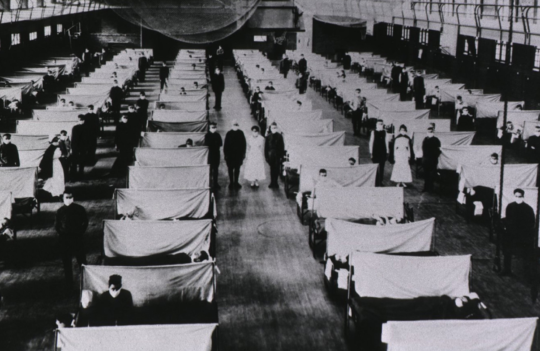SHARES
September 06, 2021
1227


by Joanne Lee
Multipotentialite. Loves creating and seeing ideas come alive. View all articles by Joanne Lee.

We may regard vaccines as one of the biggest miracles, or rather, breakthroughs in medicine. Vaccination helps us to build a stronger immune system that acts as a shield against infectious diseases; preventing us from contracting or potentially spreading them.
Reports from the World Health Organization show that vaccines were able to prevent 10 million deaths in 2010 to 2015. This is a powerful result, and it leaves us wondering just how different the world would be if the 500 million people who died from the 1918 Spanish flu received vaccinations in time.
In this article, Infectious Diseases Specialist Dr Loh Jiashen shared about the power of vaccines, and the essential vaccinations that should be taken.

According to Dr Loh, the average healthy adult does not need to receive a lot of vaccinations, but there are situations that call for it at different stages in life.
Touching on the usual recommendations on the types of common vaccines, Dr Loh said: “Routinely, TDaP vaccine (against diphtheria, tetanus and whooping cough) is for all adults every 10 years. I also recommend TDaP in every pregnancy regardless of previous dosage received.”
Dr Loh also mentioned, “Take influenza vaccines yearly, especially if one is at high risk of developing flu complications.”
Most vaccines can be taken together at once, with a few exceptions as commented by Dr Loh:
“Many vaccines were coformulated to target multiple disease in one injection. The TDaP and MMR vaccine, one that infants of nine to 15 months usually receive for protection against measles, mumps and rubella is a classic example.”
However, it is important to note that there are also exceptions. For instance, take the pneumococcal vaccines PCV13 and PPSV23 separately as they both cover overlapping strains of the pneumococcal bacteria.
According to Dr Loh, it is generally a ‘yes’ for most medical conditions, such as hypertension, diabetes mellitus, asthma etc. However, in the case of immunocompromised patients, discuss these following principles to reach a mutual understanding.
Dr Loh explained: “Firstly, the extent of the weakened immunity varies, so we evaluate vaccine eligibility in every individual. Secondly, we would avoid live vaccines in the immunocompromised or pregnant patient to avoid triggering an infection, as the vaccine contains attenuated form of the live virus.”
“In this immunocompromised or pregnant patient group, we recommend vaccination of close family members. The aim is to form a non-transmitting protective bubble around the patient who cannot receive the live vaccine. Varicella vaccine is a classic example.”
As for the third principle, for conditions that temporarily compromise the immune system, delay vaccination until the condition stabilize. If non-live vaccine is administered in an immunocompromised state, it could lead to a suboptimal vaccine response.
Ever wondered why there are age restrictions for different vaccines? Dr Loh explained that it is to prevent diseases that are likely to occur at different stages in life.
For instance, it is important for infants and young children to receive vaccinations at a young age to prevent getting highly contagious diseases, such as measles or mumps. Some of these vaccines remain highly protective for many years and are still effective even as the child enters adulthood.
Children and adolescents can consider the human papillomavirus (HPV) vaccination. The goal is to achieve stronger immunity to HPV prior to the start of sexual activity.
Further citing more examples, Dr Loh shared that the Dengue vaccine is for those above the age of nine in endemic areas, where there is a higher prevalence of dengue. Dengue vaccination in seronegative individuals may also backfire and result in an higher risk of severe dengue fever infection subsequently.

It is also important for the elderly to get the appropriate vaccinations. After all, the risk of severe diseases increases with age. Aging also causes the immune system to weaken, placing the seniors at risk of infections.
As for the most important vaccines for seniors above 65, Dr Loh recommend the pneumococcal vaccines (PCV-13 and PPSV-23) as well as the influenza vaccine. Additionally, he also suggested the zoster vaccine to prevent herpes or shingles.

Consult your doctor to find out if you or family members are behind for vaccinations. You may also check out the national immunization guide here.
Dr Loh Jiashen, Infectious Disease Specialist, contributed this article in collaboration with Farrer Park Hospital. Read the original article here.
Find, Call or Book an appointment with an Infectious Disease Specialist in Singapore, on GetDoc
The publisher have made extensive and reasonable efforts to ensure that medical information is accurate and conform to GetDocSays’ standards. Articles reflect the opinions and views of the contributors and not the publisher.
The information on this site is not professional advice. Neither should it replace personal consultation with a physician, dentist, pharmacist, or other health care professional. The reader should not disregard medical advice or delay seeking it because of information published here.
Multipotentialite. Loves creating and seeing ideas come alive. View all articles by Joanne Lee.




